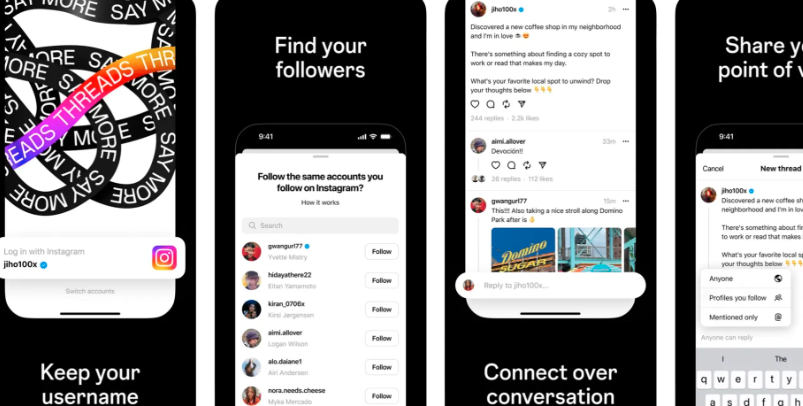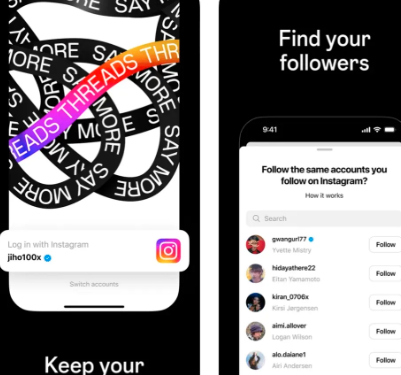Meta, the parent company of Facebook and Instagram, has debuted a new social media platform, Threads, marketed as a more congenial alternative to Twitter. However, the launch of Threads has provoked backlash over allegations of immediate and secretive censorship and intensive data collection.
Threads, described by Meta’s CEO Mark Zuckerberg as a “friendly” Twitter competitor, is a text-based conversation platform where users can publish posts of up to 500 characters and share links, photos, and videos. The app, now available in over 100 countries for iOS and Android users, directly links to the Meta-owned Instagram platform, which currently boasts over 2 billion users.

While Zuckerberg argues that the success of Threads lies in fostering a positive community, data privacy concerns have already surfaced. Former Twitter owner Jack Dorsey highlighted the vast amount of data that Threads collects, including information about “Health & Fitness,” “Financial Info,” “Sensitive Info,” and an ominously unspecified category of “Other Data.”
Journalist Michael Shellenberger also criticized the platform for alleged censorship. In his analysis, Shellenberger noted that Threads began censoring users within a few hours of its launch, without providing them the right to appeal.
Critics have suggested that Threads’ success could lead to Meta controlling an alarming 80% of the global market, excluding Russia and China. This possibility raises further concerns about the company’s potential to manipulate the flow of public information to align with corporate interests.
Despite the criticisms, Threads attracted more than 10 million sign-ups shortly after its launch. The new platform has been utilized by high-profile figures including Kim Kardashian, Jennifer Lopez, and Congresswoman Alexandria Ocasio-Cortez.
Notably, the platform experienced early technical difficulties. Ocasio-Cortez reported her app “bricked” just five minutes into her usage. Such early hiccups, along with concerns about data privacy and censorship, have drawn considerable criticism from observers on Twitter.
This is not the first attempt to challenge Twitter’s social media dominance. Other Twitter clones, including Donald Trump’s Truth Social, Jack Dorsey’s Bluesky, and Mastodon, have all tried and failed to gain a sufficient user base to break into the mainstream.
The scrutiny around Threads’ launch reflects broader concerns about Meta’s power and influence in the digital space. Whether Threads can overcome these issues and establish itself as a viable Twitter competitor remains to be seen.











